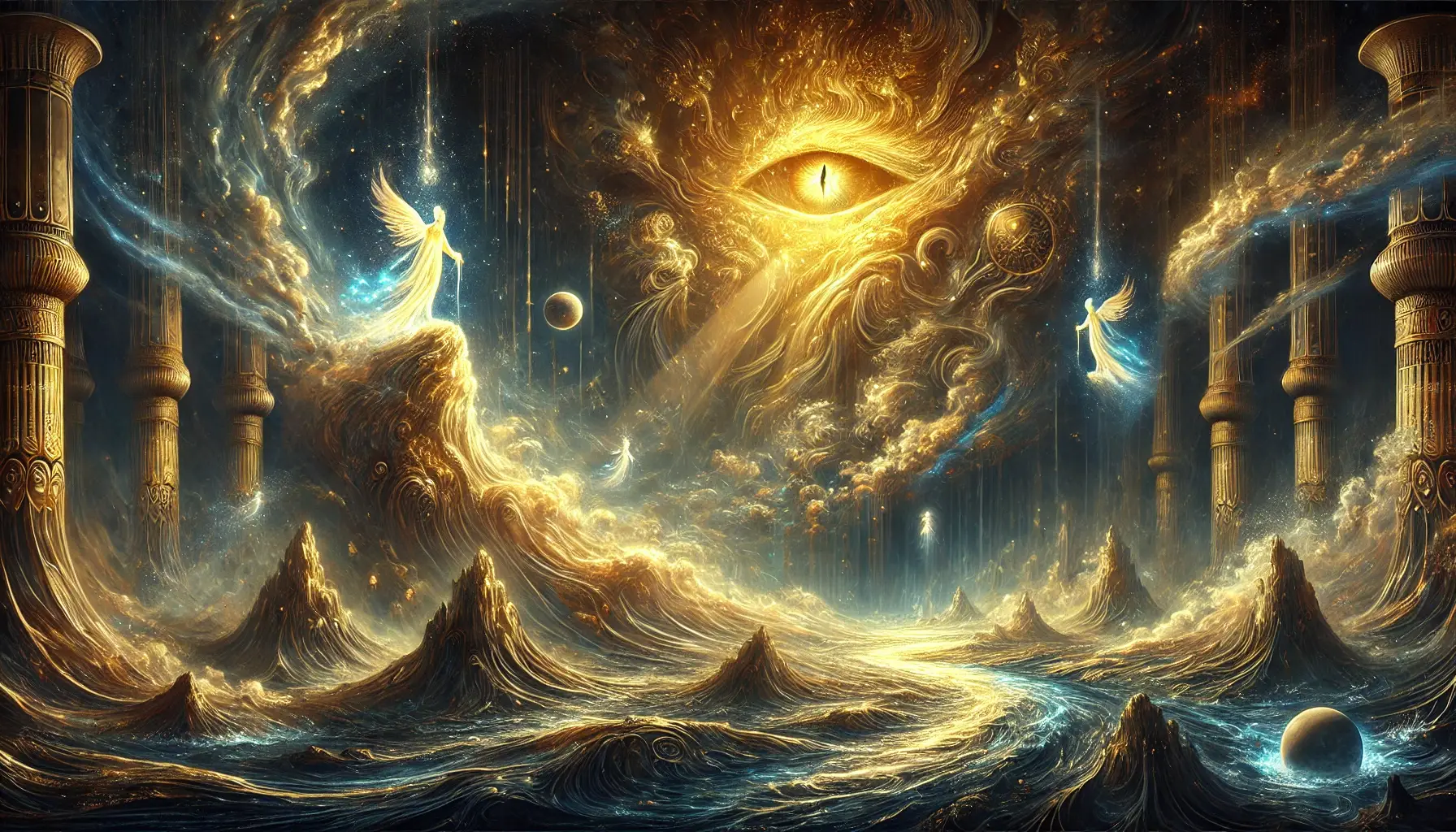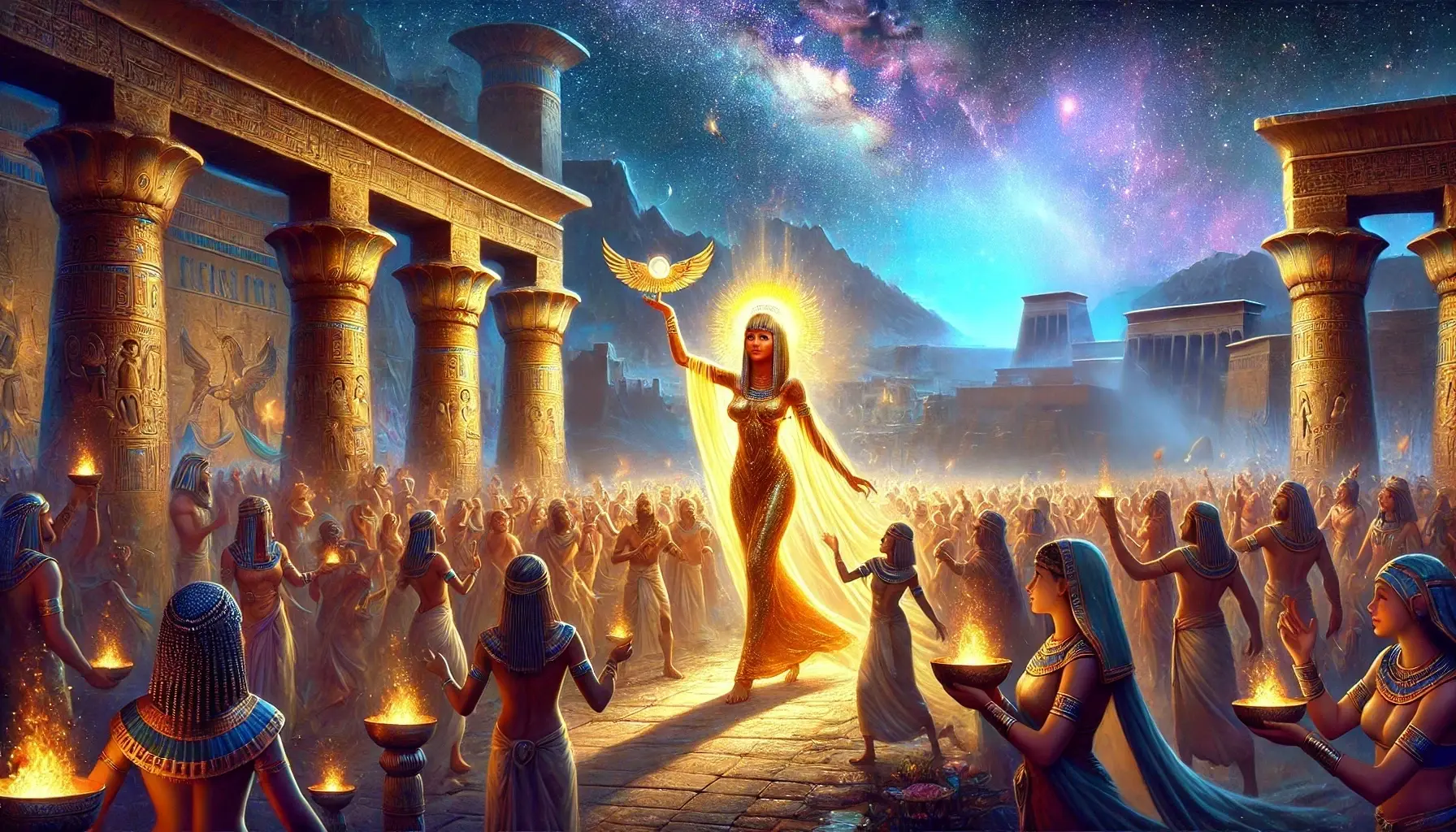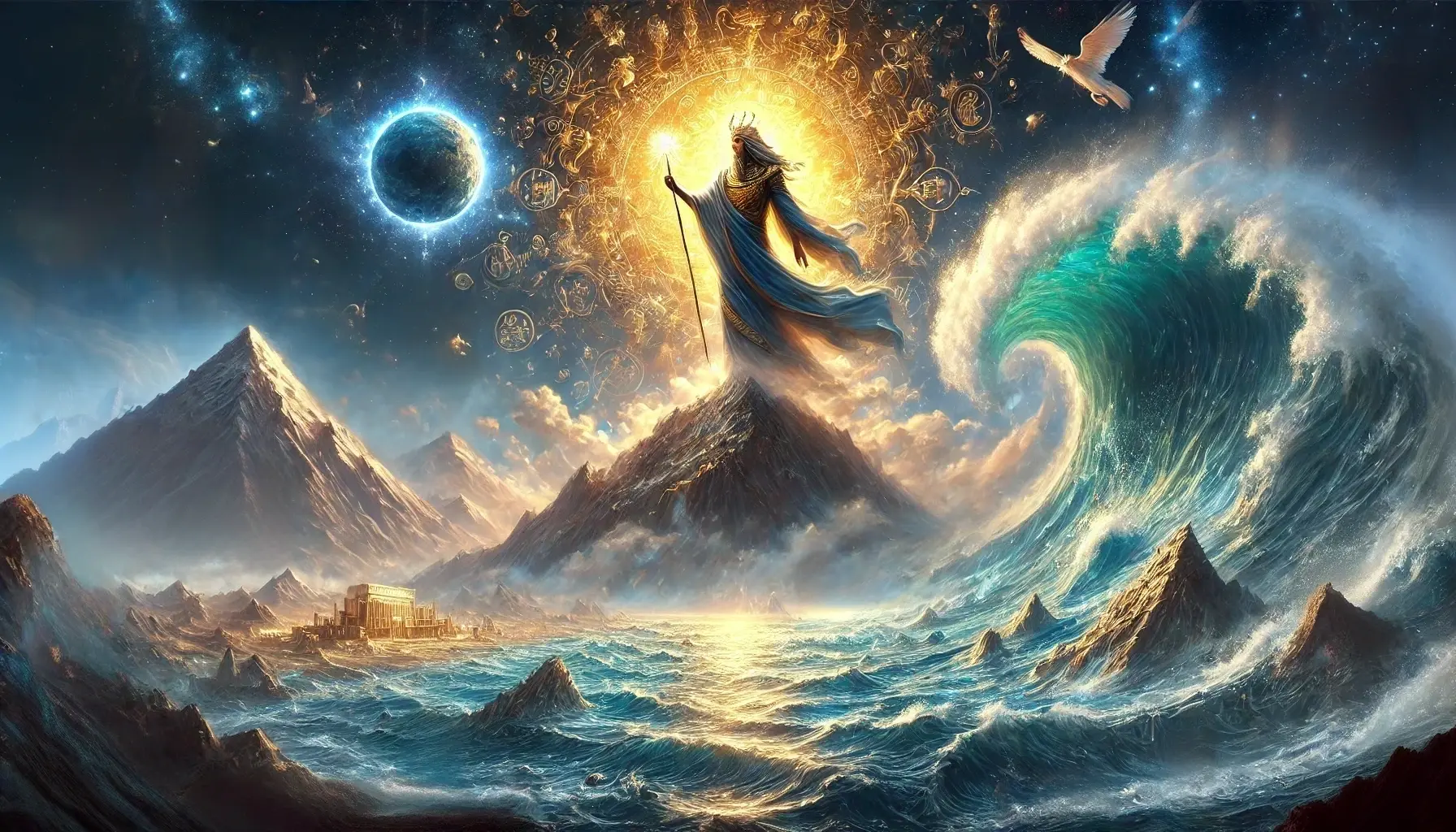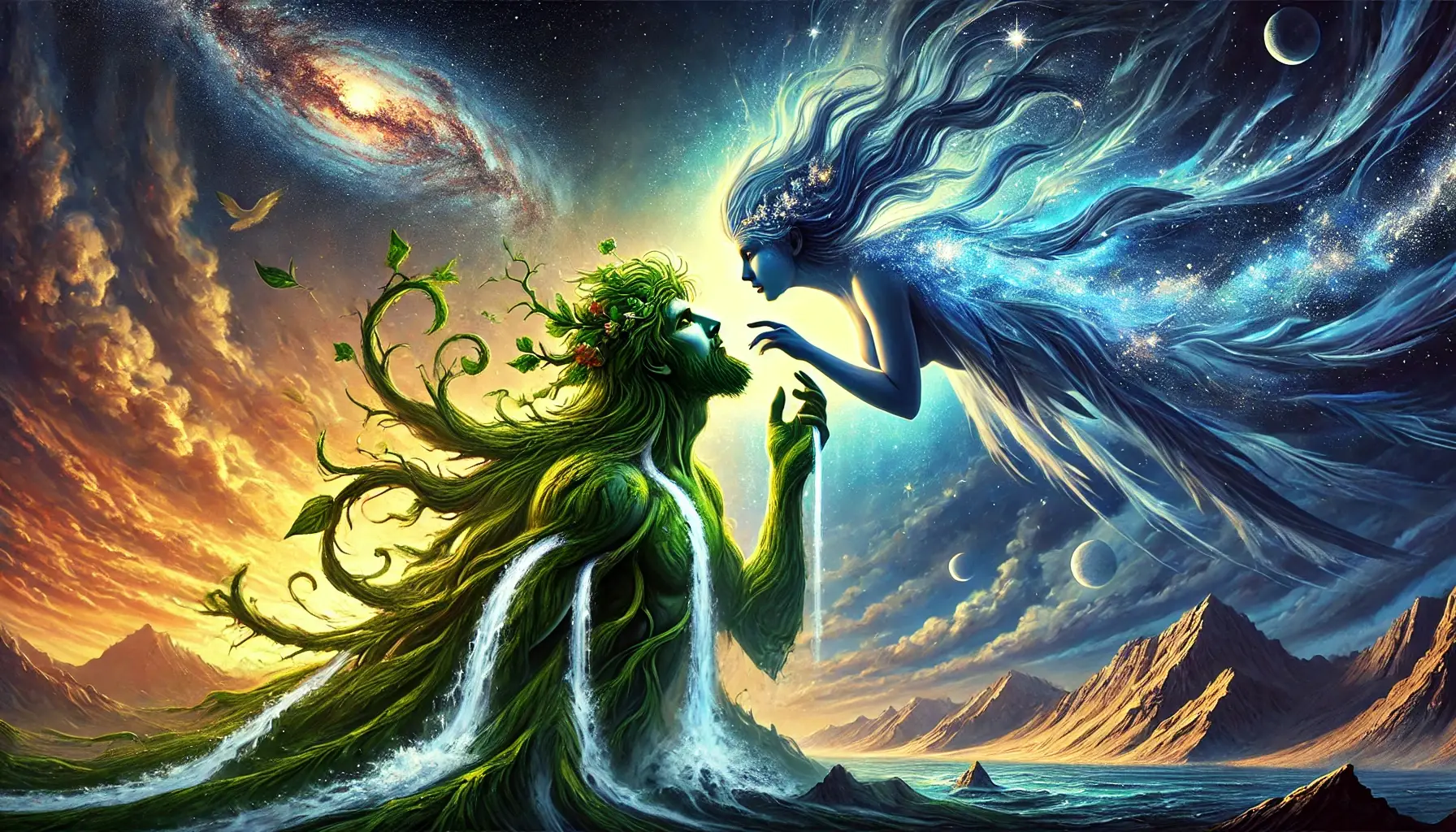The Birth of Balance and the Children of Atum
Long ago, in the days before the earth was formed, the universe was a vast expanse of water and darkness, the primordial chaos known as Nun. From this infinite void emerged Atum, the self-created, the source of all life. Lonely and desiring companionship, Atum fashioned children from his own essence. Through the union of his will and breath, Shu, the god of air, and Tefnut, the goddess of moisture, came into being. Together, they were the balance of opposites—breath and water, life and flow.
Atum delighted in his offspring, for they brought harmony to his existence. Shu’s laughter rippled through the void, light as the morning breeze, while Tefnut’s whispers wove gentle mists across the unseen horizon. Together, they danced through the emptiness, their presence hinting at the world to come. But the vastness of Nun was endless, and its silence bore the weight of eternity. It was in this great, unformed expanse that the first tragedy unfolded.
The Wandering and the Separation
As Shu and Tefnut grew curious, their spirits stirred with a yearning to explore. With Atum’s blessing, they ventured into the boundless waters of Nun. For a time, their journey was joyous. They discovered the hidden textures of existence: the silky threads of time, the weight of potential worlds, and the faint hum of unseen stars. Yet, in the measureless dark, their union faltered. The void held no landmarks, no compass to guide their return.
Days stretched into aeons, and the siblings lost their way. Their connection, once as natural as the pulse of a heartbeat, grew tenuous. Shu called out, his voice an exhalation carried on phantom winds. Tefnut answered, her cries like droplets lost in an endless sea. But the vastness of Nun swallowed their calls, and their paths twisted apart.
Far from his children, Atum felt their absence as a gnawing emptiness within his being. His perfect balance was undone, and anguish crept into his heart. The light of his creation dimmed, and for the first time, he knew fear—fear that he had birthed them into a chaos too great to bear.
The Weeping of Atum
Atum climbed to the peak of Benben, the primordial mound that rose above the waters. From this sacred vantage, he searched the depths of Nun for any sign of Shu and Tefnut. He extended his sight beyond the veils of darkness, his gaze piercing through layers of potential reality. But his children remained hidden, their forms lost to the swirling chaos.
Despair gripped Atum, and from his eyes spilled the first tears. These tears fell into the waters of Nun, mingling with the formless abyss. Where they touched, they birthed new life: the first humans, fragile beings molded from divine sorrow. The humans, sensing the anguish of their creator, raised their voices in a chorus of mourning. Their laments echoed through the void, a plea for reconciliation that pierced even the chaos.
The Return of Shu and Tefnut
Moved by his sorrow, Atum sent his Eye—a fragment of his essence imbued with his will and power—to seek Shu and Tefnut. The Eye roamed tirelessly, a beacon of light in the formless sea. It swept through the currents of Nun, piercing shadows and stirring hidden currents, until at last it found them.
Shu, his essence dimmed by despair, knelt upon a drifting islet of silence. Tefnut, her vitality sapped, lay shrouded in a cocoon of mist. The Eye descended upon them, its light rekindling their spirits and guiding them back to the presence of Atum. Their reunion was a burst of radiance, a harmony restored. Shu and Tefnut embraced their father, their tears mingling with his own.
In this moment, balance returned. The world-to-be stirred in anticipation, its essence drawn from the reconciliation of breath and water. Shu and Tefnut promised never to stray so far again, their bond renewed by the trials they had endured.
The Gift of Creation
In their return, Shu and Tefnut brought the seeds of the world—the first whisper of order within chaos. Shu, as air, held the heavens aloft, while Tefnut, as moisture, nurtured the earth below. Together, they gave form to the sky and the fertile lands, laying the foundation for the creation of Geb and Nut, the earth and the heavens.
Atum, no longer solitary, found solace in his growing family. His tears, which had birthed humanity, became a testament to the bond between the divine and the mortal. The humans, fragile yet resilient, gazed upward at the expanse of sky and gave thanks to the gods who had shaped their world.
The Eternal Dance of Breath and Flow
Though the chaos of Nun still lingered beyond the edges of creation, its grip had lessened. Shu and Tefnut’s return marked the first victory of order over formlessness, a triumph etched into the fabric of existence. Yet, their journey left its mark. The memory of separation remained like an ache, a shadow of what was lost and reclaimed.
On the nights when the sky grows silent and the air hangs heavy, the humans tell the tale of Shu and Tefnut’s wandering. They remember the fragility of balance and the tears of Atum that gave them life. They speak of the Eye, relentless in its search, and the light that guides lost souls home.
In the stillness, one can almost feel the presence of Shu and Tefnut, the breath of the wind and the caress of mist, forever intertwined. Their dance continues, an eternal rhythm that breathes life into the world, as if to remind creation that even in the face of chaos, reunion is possible.
On a distant horizon, where the sky meets the waters, a single tear glimmers in the fading light, a testament to the bond that holds the cosmos together.



